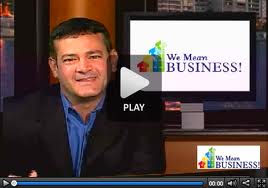To “Friend” or Not to “Friend”
A former client, now friend – we’ll call him Charlie – called me for some advice on an interesting dilemma: Since Charlie’s recent TV interview has gained a good bit of online publicity, several people from within his industry have requested to connect with him via Facebook, Twitter and Linkedin (like many of us, he also has an active blog and YouTube channel). The thing is, Charlie works in an industry with loads of competition – in fact, in his town alone there must be 100 other companies that do what he does … and they’re all vying for the same local and regional clients. So in Charlie’s small world, “colleague” is often synonymous with “competitor.”
Here is Charlie’s concern:
- “I’m very selective about whom I connect with on Facebook. I use it mainly for personal stuff. But what if I ‘friend’ someone who steals my business ideas?”
In this post I’ll address his concerns. I expect several of you will feel compelled to chime in. As always, I invite and value your comments.
Create Your World
In the social media universe, Facebook, Twitter, Linkedin and YouTube are the big four. Each has extensive privacy controls to make you highly visible to the world, completely INvisible/inaccessible, or something in between. Decide what’s right and best for you. We’ll use Facebook as an example here:
a. my Facebook presence is strictly personal
b. my Facebook presence is strictly professional
c. my Facebook presence is rated “E” for everyone
If you choose to go fully public as a representative of your business, give some thought to creating a social media strategy that feels right for you and is aligned with your mission. You could post daily, weekly or monthly updates, sharing videos and articles like I do. Once you’ve made your choice, the path becomes clear and moving forward will be easier. For a live example of these easy-to-follow guidelines, CLICK HERE.
Now that we’ve covered the basics, let’s move on to Charlie’s main concern.
I don’t wanna give away my best stuff!
 Social media has created an interesting dilemma for many of us, especially [Read more…]
Social media has created an interesting dilemma for many of us, especially [Read more…]



 You know the scene
You know the scene When you make a valuable connection, set up a follow-up appointment for coffee or lunch. This allows you to pursue more focused conversations than those had in large group settings, meet more people, and can lead to stronger associations.
When you make a valuable connection, set up a follow-up appointment for coffee or lunch. This allows you to pursue more focused conversations than those had in large group settings, meet more people, and can lead to stronger associations.
















